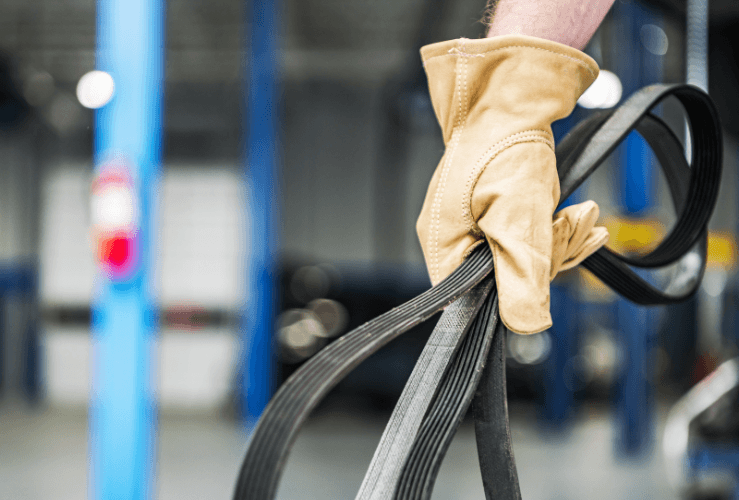If your car is making an unusual sound when you hit the accelerator, it's important to get your vehicle checked over as soon as possible. Read our quick guide to the most common noises - and which components they may relate to.
Unless you drive a sports car, your vehicle should not be making a loud noise when you accelerate. Picking up speed should be smooth and steady, with only a minimal degree of extra sound.
If you've noticed your vehicle has started to make unusual noises, it's important to get it checked over as soon as you can. Leaving it could lead to more serious mechanical problems - and a larger repair bill.
Here are some of the kinds of sounds you might hear and what issues they are associated with.

Lawn mower sound from exhaust system
A car that sounds like a lawn mower is never desirable. It could mean your exhaust system has developed a leak - possibly due to corroded components.
Your car's exhaust system is critical for processing emissions, minimising pollutants and reducing the sound of the engine.
Aside from unwanted lawn mower sound effects, a damaged exhaust system could cause carbon monoxide to leak into your cabin. This noxious chemical can cause occupants to feel drowsy - so it's crucial you get your vehicle checked over if you suspect a damaged exhaust system.
Rattling exhaust system
A rattling noise from your exhaust could also be associated with a damaged exhaust system and might be heard together with the above 'lawn mower' sound.
A rattling exhaust could also mean the system has become misaligned and is vibrating against another part of the car. A loose mounting, support bracket, or clamp may be the culprit.
It could also mean that your catalytic converter has failed or is in the process of doing so.
Ticking, clicking, or knocking from engine
Your car's engine has many moving parts - and when any of these go wrong, an unusual sound may occur when you depress the accelerator pedal.
- A ticking noise from your engine suggests the bearings may have worn out.
- A clicking sound could mean the valves have become worn.
- A heavy knocking noise is likely to relate to damaged/worn pistons - although you'll hear this all the time when running, not just when accelerating.

Squeaking or whining - Serpentine belt
If your vehicle squeaks or whines when you turn or accelerate, your belts may be worn out, or a tensioner may have become loose.
Clicking or rattling - Serpentine belt
This could mean there's a problem with one of the pulleys that the serpentine belt needs to function properly.
Your car's serpentine belt transfers power to the engine accessories - including the alternator, power steering pump and air conditioning system compressor.
Needless to say, this is an essential component and you should get it checked over if you suspect a problem.
Grinding, humming or whirring from wheels
If the bearings inside your wheels become faulty or loose, they can spin inside the wheel and cause a noise that sounds like gusts of wind, humming or whirring. The noise gets worse as you accelerate because the bearings are spinning faster.
Loose bearings could also cause your wheels to wobble.
Flapping noise - Tyres or fan belt
A flapping sound could mean your tyres are underinflated.
If this isn’t the issue, the noise may well relate to a broken fan belt.
Get your car checked over
Any unusual noises mean you should get your vehicle looked at by a trained mechanic. Ignoring the problem could lead to further mechanical problems, more stress and more money to shell out for repairs later on.




